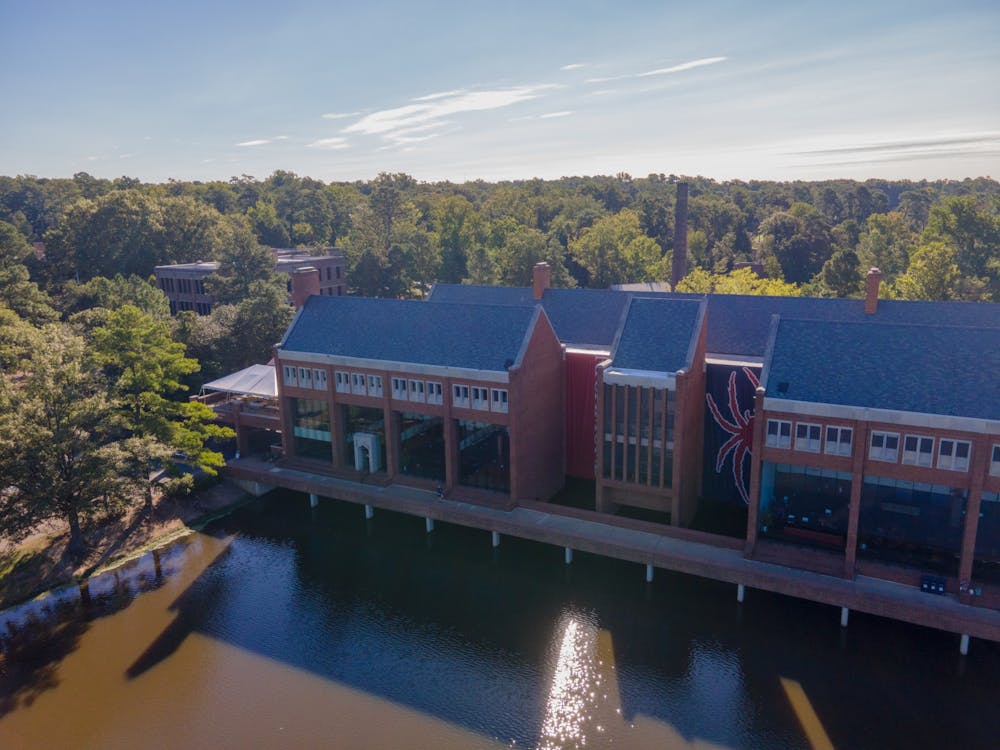With the coming U.S. presidential election, now is a better time than ever for students to get involved in political issues they are passionate about. Although there are many ways to do this, one advocacy method that University of Richmond students have been practicing and studying is grassroots campaigning.
The term "grassroots" describes a “type of movement or campaign that attempts to mobilize individuals to take some action to influence an outcome, often of a political nature,” according to Britannica.
Grassroots lobbying and advocacy are where many people turn to when they see a problem in their community that they think can be fixed through public policy, Beck Stanley, a program specialist for UR's Lobbying and Advocacy certificate, wrote in an email.
Junior Cassie Coughlan got involved with grassroots movements after her first year at UR through an organization called Virginia21, a non-profit, nonpartisan organization that works to advocate in the Virginia General Assembly for issues that are important to college students, Coughlan said. As a student leader for the organization, it is her responsibility to promote Virginia21 at UR and get other students civically engaged, Coughlan said.
“The goal is just to have a culture of civic engagement on campus,” Coughlan said. “A lot of it has to do with registering people to vote, educating people about Virginia politics, and just getting people aware of the issues that impact them, especially on the local and state levels.”
One of the benefits of grassroots campaigning for Coughlan is having the opportunity to educate students on how state-level politics impacts them, Coughlan said. For instance, Virginia laws about tuition assistance grants and student loans affect UR students even if they do not live in Virginia, Coughlan said.
“I think it’s important that students realize their power,” Coughlan said. “If college students become a huge voting constituency in a certain district, delegates will want to listen to them and want to respond to their needs.”
UR has recognized the importance of grassroots lobbying by creating a program in the School of Professional and Continuing Studies for students to earn a certificate in Grassroots Lobbying and Advocacy.
“It was obvious [when the program was created that] the advocacy industry lacked a formal education process for entry-level hires," Stanley wrote. "Judging by the success of the program, we have filled that need,”
For the Lobbying and Advocacy certificate, students complete a 12-week program during which they learn about the different types of lobbying and the history of the profession, Stanley wrote. Students are also taught how to build a coalition and manage media, Stanley wrote. At the end of the program, students complete a capstone project which includes applying what they learned to their own career path, Stanley wrote.
"The skills that I picked up in that class, obviously, one gave me a rundown of how the political system works, and how to kind of navigate those waters," Brian Peyton, a student of the Lobbying and Advocacy program, said. "But also it gave me the ability to be able to draft compelling arguments and be able to really focus on how do you present a message and how do you gather a coalition, and how do you get other people involved. All of that came from the experience and the training that I received from [the Lobbying and Advocacy] class."
Peyton is currently the president of Teamsters Local 322, which represents groups such as UPS in Richmond and Fredericksburg, Lively, and Airmark, Peyton said. Also, he is the political coordinator for Teamsters Joint Council 83, Peyton said. His role as a political coordinator is to involve getting involved with any of the politics that happens in Virginia, such as lobbying elected officials, getting people to vote, and gaining PAC contributions, Peyton said.
Enjoy what you're reading?
Signup for our newsletter
"The biggest thing that I got out of that program, in addition to learning it, you also made those connections," said Peyton. "You're going to run into [the people in the Lobbying and Advocacy program] at different events. It's not uncommon to see them in the halls of the General Assembly or at different political events."
In the most recent graduating class for the certificate, there were students who were already employed by advocacy organizations or lobbying firms and those who were not employed in the field enrolled in the program's most recent class, Stanley wrote. After graduation from the program, 100% of these students received job offers from advocacy organizations or lobbying firms after graduation, Stanley wrote.
“In that light, and it’s a central theme of the course, everyone’s a lobbyist,” Stanley wrote. “Every single person either lobbies or gets lobbied to make a decision every single day.
"And so it goes far beyond just the professional implications of working in this field, these are important life skills being taught in this course.”
Contact features writer Lauren Oligino at lauren.oligino@richmond.edu.
Support independent student media
You can make a tax-deductible donation by clicking the button below, which takes you to our secure PayPal account. The page is set up to receive contributions in whatever amount you designate. We look forward to using the money we raise to further our mission of providing honest and accurate information to students, faculty, staff, alumni and others in the general public.
Donate Now



